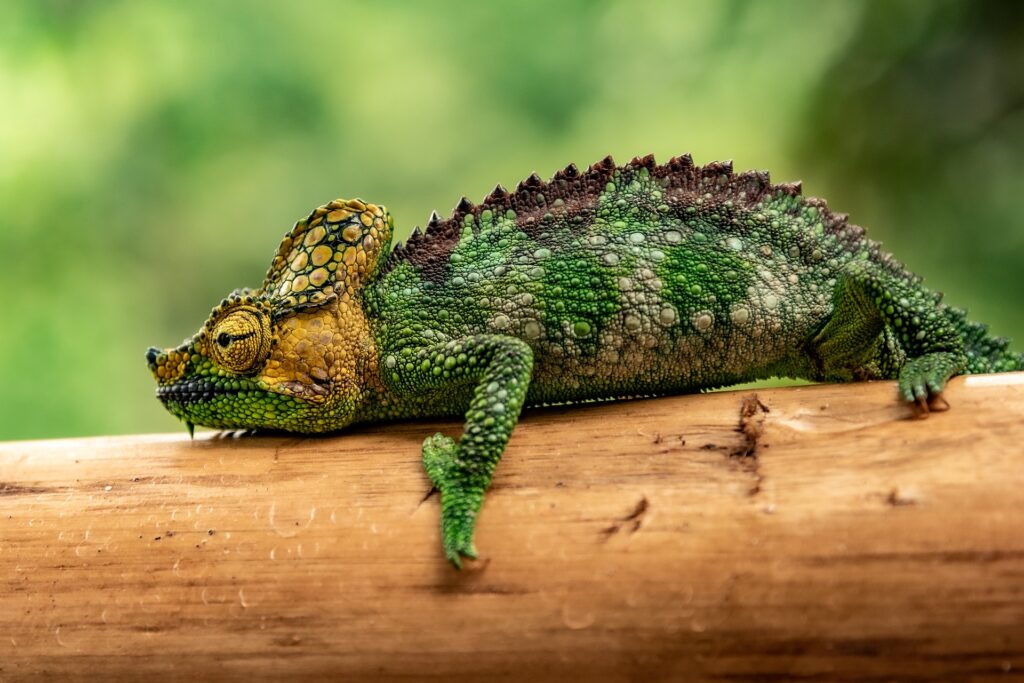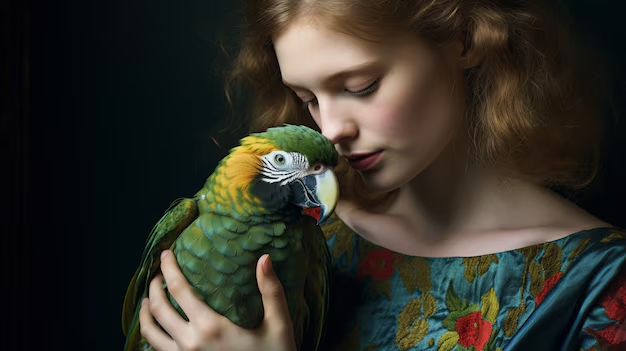
Have you ever looked at your furry friend and thought, “Hmm, maybe I need something a little more… unique?” Perhaps the purrs of a cat or the playful barks of a dog just don’t spark your joy. If you’re looking for a pet that’s a bit more out of the ordinary, the world of exotic pets might pique your interest! But before you dive headfirst into the world of scaly friends, feathery companions, or anything in between, it’s crucial to understand the responsibilities that come with owning an exotic animal. This article will dive into the details of: What is an exotic pet and how to choose one?
What Exactly is an Exotic Pet?
There’s no single definition of an “exotic pet.” Generally, it refers to any animal kept as a companion that’s not traditionally domesticated, like cats, dogs, or farm animals. The exotic pet world is vast, encompassing a wide range of creatures like:


- Reptiles: Snakes, lizards, turtles, tortoises, and geckos
- Amphibians: Frogs, toads, and salamanders
- Small Mammals: Hedgehogs, sugar gliders, chinchillas, and ferrets
- Birds: Parrots, toucans, and finches
- Invertebrates: Tarantulas, scorpions, and hermit crabs
Also Read: What are Pocket Pets? A Guide to the Adorable World of Pocket Pets
The Allure of the Exotic
So, why choose an exotic pet? There are several reasons why these unique animals might appeal to some pet owners:
- Unique Appearance and Behaviors: Many exotic pets boast stunning colors, fascinating patterns, and intriguing behaviors that can be captivating to watch.
- Lower Maintenance: Some exotic pets, like certain reptiles, can require less daily care than traditional pets. This might be appealing to busy lifestyles.
- Intellectual Challenge: Caring for some exotic pets can be intellectually stimulating, requiring research and understanding of their specific needs.
Responsibilities of Owning an Exotic Pet
Owning an exotic pet is a significant commitment. Unlike cats and dogs who have been bred for companionship for thousands of years, many exotic animals have complex needs and can be challenging to care for. Here are some crucial things to consider before welcoming an exotic pet into your life:
- Legality: Owning certain exotic pets might be illegal in your area. Always check local and state regulations before acquiring an exotic animal. Some species may require permits or licenses.
- Lifespan: Many exotic pets have lifespans that can extend well beyond the average dog or cat. Are you prepared to care for an animal for 10, 20, or even 50 years?
- Habitat Needs: Exotic pets require specific environments to thrive. Can you provide the proper habitat, including temperature, humidity, lighting, and space? This might involve building a terrarium, aquarium, or specialized enclosure.
- Diet: Exotic pets have diverse dietary needs. Some may require live insects, specialized pellets, or a combination of foods. Be prepared to source their food regularly and ensure you know how to feed them properly.


- Veterinary Care: Finding a veterinarian experienced in treating exotic animals is crucial. Exotic pets may have specific health needs that require specialized care. Veterinary bills for exotic pets can be expensive, so factor this into your decision.
- Time Commitment: Exotic pets require daily care, even if it’s less intensive than a dog. This includes cleaning their habitat, feeding them, and monitoring their health. Are you prepared to dedicate this time every day?
- Social Interaction: Many exotic pets are solitary creatures and don’t crave human interaction the way dogs or cats do. Understand the social needs of your chosen species and be realistic about your expectations for companionship.
Choosing the Right Exotic Pet for You
If you’ve carefully considered the responsibilities and are still drawn to the world of exotic pets, the next step is choosing the right animal for you. Here are some factors to ponder:
- Your Lifestyle: Consider your daily routine, living space, and budget. Some exotic pets require more attention, specialized care, or larger enclosures than others.
- Experience Level: Are you a first-time pet owner, or do you have experience caring for animals? Certain exotic pets require more specialized knowledge and experience to care for properly.

- Temperament: Research the temperament of different species. Some exotic pets can be gentle and docile, while others may be more skittish or aggressive.
- Legality: Double-check the legality of owning your chosen species in your area. Don’t support the illegal pet trade!
Also Read: Pampered Pups: Trendy Dog Accessories for Small Breeds in 2024
Responsible Exotic Pet Ownership: Resources and Tips
If you’ve done your research and feel confident about welcoming an exotic pet into your life, here are some resources and tips to help you be a responsible owner:
- Reputable Breeders: Always purchase your exotic pet from a reputable breeder who prioritizes the animal’s health and well-being. Avoid pet stores or backyard breeders who may prioritize profits over animal welfare.
- Exotic Pet Societies and Forums: Join online communities or local societies dedicated to your chosen exotic pet species. Connect with experienced owners who can offer advice and share information.
- Veterinarian Visits: Schedule regular check-ups with a veterinarian experienced in treating exotic animals. This will help ensure your pet stays healthy and receive proper preventive care.
- Commitment to Lifelong Care: Remember, owning an exotic pet is a lifelong commitment. Be prepared to care for your animal for its entire lifespan, providing for its needs even when the novelty wears off.


- Never Release Your Pet into the Wild: Exotic pets can wreak havoc on ecosystems if released into the wild. If you can no longer care for your pet, find it a responsible new home through a reputable rescue or breeder.
The Ethical Considerations of Exotic Pet Ownership
There are ethical considerations to keep in mind when choosing an exotic pet. Here are some questions to ask yourself:
- Is this animal suited for captivity? Some exotic animals have complex social needs or require vast territories in the wild. Can you replicate their natural environment in a captive setting?
- Is the pet being sourced ethically? Avoid supporting the illegal pet trade, which often involves cruel capture methods and poor animal welfare practices.
- Are there welfare concerns associated with this species? Some exotic pets are prone to health problems or behavioral issues in captivity due to selective breeding or inappropriate housing.
By carefully considering these ethical questions, you can choose an exotic pet and ensure its well-being throughout its life.
The Rewards and Challenges of Owning an Exotic Pet
Owning an exotic pet can be a rewarding experience. They can offer unique companionship, a fascinating glimpse into the animal world, and a chance to learn about a new species. However, the challenges are significant. Exotic pets require specialized care, can have complex needs, and may not be suitable for everyone.
The Final Decision: Is an Exotic Pet Right for You?
Only you can decide if an exotic pet is the right choice for you. Carefully weigh the responsibilities, research your chosen species thoroughly, and be honest about your ability to provide lifelong care. If you can confidently answer “yes” to all of these considerations, then the world of exotic pets awaits you! Remember, responsible ownership is key to ensuring the well-being of your unique companion.
Beyond the Basics: Exploring Different Types of Exotic Pets
If you’re curious about specific exotic pet species, here are some resources to get you started:
- Reptiles: The Association of Reptilian and Amphibian Veterinarians (ARAV) https://arav.org/
- Amphibians: The Amphibian Ark https://www.amphibianark.org/
- Small Mammals: The American Federation of Aviculture (AFA) https://afabirds.org/2018_WordPress/ (While the AFA primarily focuses on birds, they also have resources on small mammals)
- Birds: The American Veterinary Medical Association (AVMA) – Choosing a Pet Bird https://ebusiness.avma.org/files/productdownloads/SelectBird_En.pdf
- Invertebrates: The Invertebrate Keepers Association (IKA) https://rethinkpriorities.org/publications/category/Invertebrate+Welfare
Remember, this is just a starting point! Always conduct your own research on the specific species you’re interested in before making a decision.
Final Thoughts
The world of exotic pets offers a fascinating glimpse into the diversity of animal life. However, before diving into this unique pet ownership experience, carefully consider the responsibilities and ensure you can provide proper care for your chosen animal. By making responsible choices and prioritizing the well-being of your exotic pet, you can create a mutually rewarding bond and become a responsible steward of a fascinating creature.
What is an Exotic Pet? How To Choose an Exotic Pet? – FAQs
- What exactly is considered an exotic pet?
There’s no universally agreed-upon definition, but generally, an exotic pet is any animal kept as a companion that isn’t traditionally domesticated, like cats, dogs, or farm animals. The exotic pet world is vast, encompassing creatures like reptiles, amphibians, small mammals, birds, and even invertebrates!
- Why might someone choose an exotic pet?
There are several reasons! Some people find the unique appearance and behaviors of exotic pets fascinating. Others might be drawn to the lower maintenance requirements of certain species compared to traditional pets. The intellectual challenge of caring for an animal with specific needs can also be appealing.
- Before I get an exotic pet, what are the most important things to consider?
There are several crucial factors. First, check local and state regulations – some exotic pet ownership might be illegal in your area. Consider the lifespan of the animal – are you prepared for a long-term commitment? Research their specific habitat needs – can you provide the proper temperature, humidity, and space? Think about their diet – what will you feed them, and how will you source their food? Veterinary care is essential – find a vet experienced with exotic animals. Be honest about your time commitment – even if it’s less than a dog, daily care is required. Finally, understand the social needs of your chosen species – some are solitary and don’t crave constant companionship.
- How do I choose the right exotic pet for me?
Consider your lifestyle – how much space do you have, and how much time can you dedicate to care? Think about your experience level – are you a first-time pet owner, or do you have experience caring for animals? Research the temperament of different species – some are gentle, while others may be more skittish or aggressive. Of course, always double-check the legality of owning your chosen pet in your area.
- Where can I find a reputable exotic pet?
Avoid pet stores or backyard breeders who may prioritize profits over animal welfare. Look for a reputable breeder who prioritizes the health and well-being of their animals. Consider adopting from an exotic pet rescue or shelter if you’re open to that option.
- Are there any resources available to help me care for my exotic pet?
Absolutely! Join online communities or local societies dedicated to your chosen species. Connect with experienced owners who can offer advice and share information. Schedule regular check-ups with a veterinarian experienced in treating exotic animals. There are also many online resources and organizations dedicated to specific exotic pet species (check the “Beyond the Basics” section of the article for some resources).
- What are some ethical considerations when it comes to exotic pet ownership?
Is the animal suited for captivity? Can you replicate their natural environment in your home? Is the pet being sourced ethically? Avoid supporting the illegal pet trade. Are there welfare concerns associated with the species? Some exotic pets are prone to health problems due to breeding or improper care. By considering these questions, you can choose an exotic pet and ensure its well-being.
- Is owning an exotic pet all fun and cuddles?
Exotic pets can be fascinating companions, but the challenges are significant. They require specialized care, have complex needs, and may not be cuddly or social creatures. Owning an exotic pet is a big responsibility, not a walk in the park (or a slither through the terrarium!).
- Should I get an exotic pet if I’m not sure if I can commit to its entire lifespan?
No. Exotic pets can live for many years. Be certain you’re prepared to care for your animal for its entire life, even when the novelty wears off. If you can’t make this commitment, consider a different type of pet or wait until you’re in a more stable situation.
- What if I can no longer care for my exotic pet?
Never release your pet into the wild! This can be disastrous for the animal and the ecosystem. Look for a responsible new home through a reputable rescue or breeder who can properly care for the animal.

